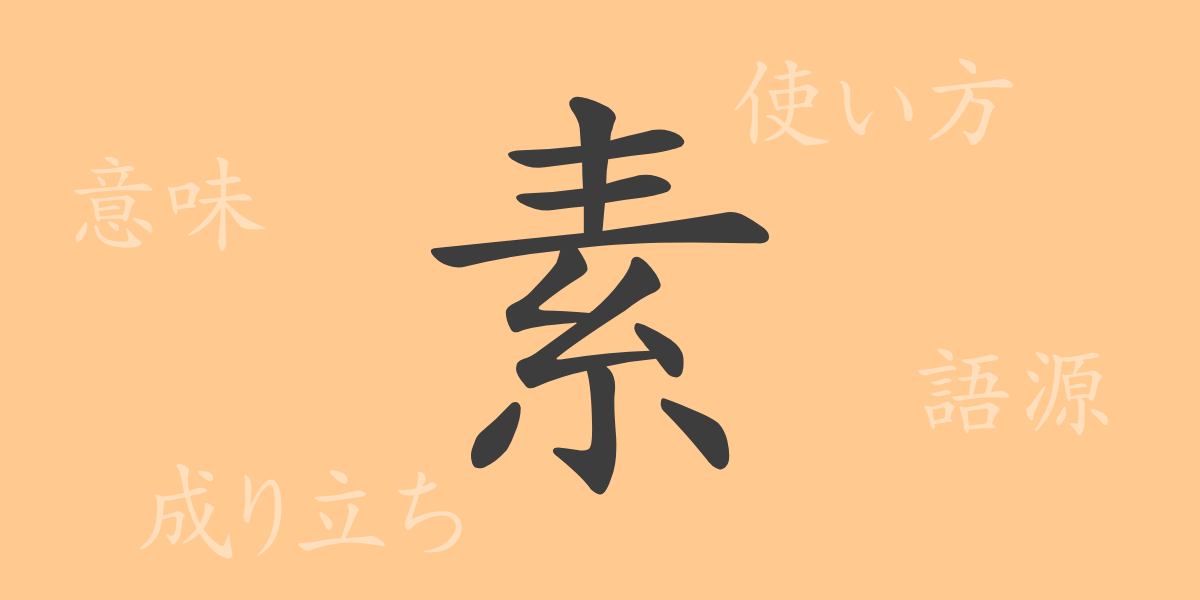The character culture of Japan is profound, and the Kanji “素” (ソ) plays an integral role in our lives, symbolizing simplicity and the fundamentals. It profoundly influences Japanese aesthetics and values. This article delves into the origins, meanings, and usage of “素” (ソ), as well as explores the idioms and phrases derived from this intriguing character.
Origins of 素 (ソ)
The Kanji “素” (ソ) has been used in China since ancient times, originally deriving from a pictograph representing sheep’s wool. Over time, it came to denote cloth made from wool and subsequently the garments made from the fabric, eventually acquiring the meaning of “white.” From this meaning evolved the symbolism of cleanliness and purity, which is widely used in Japan to denote these qualities.
Meaning and Usage of 素 (ソ)
In modern Japanese, “素” (ソ) carries multiple meanings. One is “unadorned, natural state,” and another is “basic, fundamental.” In culinary contexts, it can also mean “unadorned, simple.” These usages vary with the context in written and spoken language.
Readings, Stroke Count, and Radical of 素 (ソ)
The Kanji “素” (ソ) is fundamental in Japanese, but let’s look at the specifics:
- Readings: The on’yomi (Sino-Japanese reading) is “ソ” (ソ), and the kun’yomi (native Japanese readings) are “もと” (モト) and “す” (ス).
- Stroke Count: Total of 10 strokes.
- Radical: Thread radical (糸部/イトヘン).
Phrases, Idioms, and Proverbs Using 素 (ソ) and Their Meanings
There are numerous idioms and proverbs that include “素” (ソ) in Japanese. For example, “素顔” (スガオ) refers to a face without makeup, natural appearance. “素材” (ソザイ) means the basic materials used in making something. “素直” (スナオ) describes someone who is straightforward and honest without pretense. The adjective “素敵” (ステキ) is used to express that something is wonderfully good, a term frequently heard in everyday conversation.
Summary on 素 (ソ)
The Kanji “素” (ソ), with its simplicity and versatility, plays a crucial role in our language. From its origins to its contemporary usage and the rich phrases derived from it, the meanings of “素” (ソ) are extensive. The purity and fundamental values represented by this character continue to be a vibrant part of Japanese life and culture. Understanding “素” (ソ) used in everyday contexts is a step towards a deeper comprehension of the Japanese language.

























